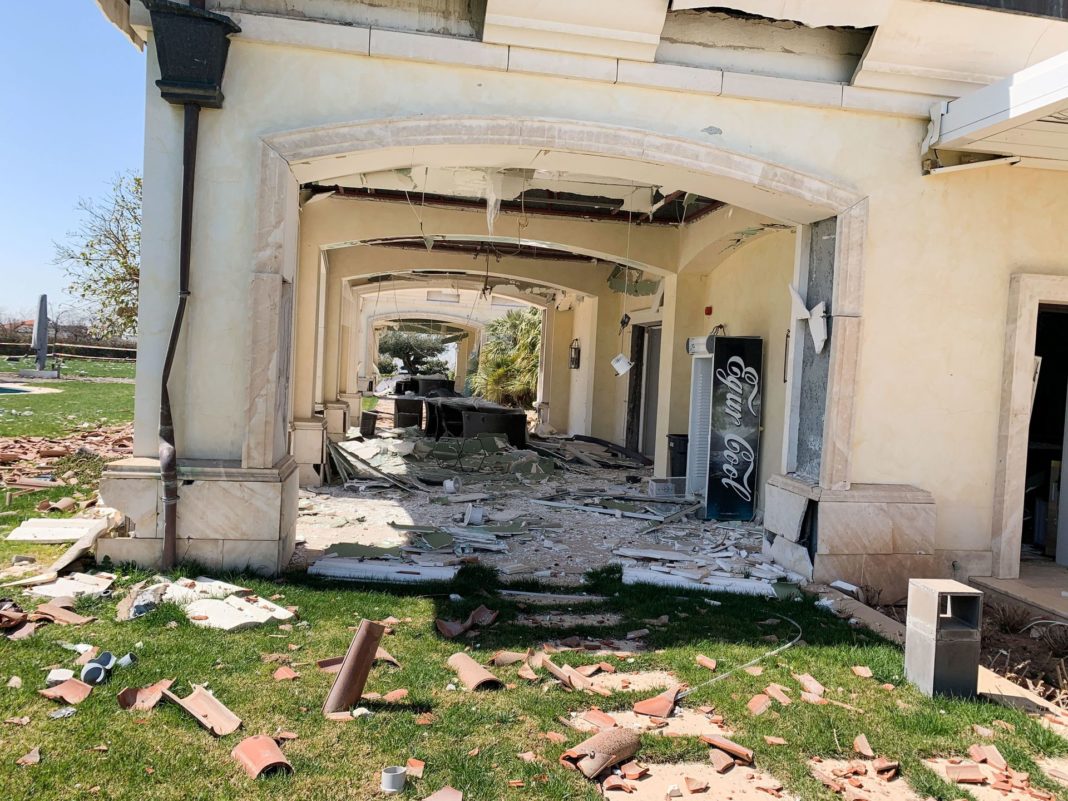« A Kurdish businessman whose home was hit by Iranian ballistic missiles this month has said he is not involved in and has no knowledge of plans to export natural gas from Iraq’s autonomous Kurdistan region to Europe » reports Amina Ismail in Reuters.
Baz Karim Barzanji, the CEO of a major domestic energy company called KAR Group, also said Kurdistan does not have the capacity to export natural gas in the near future, apparently contradicting statements by the Kurdish government this week.
Iranian forces launched 12 ballistic missiles at the Iraqi Kurdish regional capital of Erbil on March 13, saying the attack targeted Israeli « strategic centres » and was retaliation for an Israeli military attack in Syria that killed Iranian military personnel.
Most of the missiles hit a villa owned by Barzanji.
Iraqi, Turkish and Western officials told Reuters this week that the attack came partly in response to plans involving Israel for exporting Kurdish natural gas to Turkey and Europe. read more
Some discussions took place at Barzanji’s villa, they said.
Barzanji denied this.
« KAR and I do not have the authority as I am not in a position of government to talk about marketing the gas of the Kurdistan region and I haven’t spoken to anyone about this topic, » he said, in response to questions about whether talks had taken place at his property.
Reuters could not immediately reach a spokesman for the Kurdistan Regional Government (KRG) for comment on questions about its gas production or plans involving Israel for exporting Kurdish natural gas to Turkey and Europe.
Kurdish Prime Minister Masrour Barzani said this week that Kurdistan has the capacity to make up for at least some of the energy shortfall in Europe – and that oil and gas development in Kurdistan might not be in the interest of major regional energy producer Iran. read more
KAR CEO Barzanji, whose firm is closely involved in the Iraqi Kurdish domestic energy infrastructure, said Kurdistan did not have the capacity to export natural gas in the near future.
« We’ve been working in oil and gas for 15 years and we only managed to produce 50% of the local consumption, » he said. « As I see it, gas will not go across the border anytime soon if local consumption is not met. »
Iraq, including its Kurdistan region, suffers from chronic electricity shortages especially during scorching summer months. Iran provides a large part of the energy and gas needed to power Iraq’s grid.
Barzanji said that KAR is extending the current domestic gas pipeline to the northern city of Dohuk. Its output will be used for local consumption to supply the city’s power plant in Iraqi Kurdistan.
Reuters, March 30, 2022, Amina Ismail

